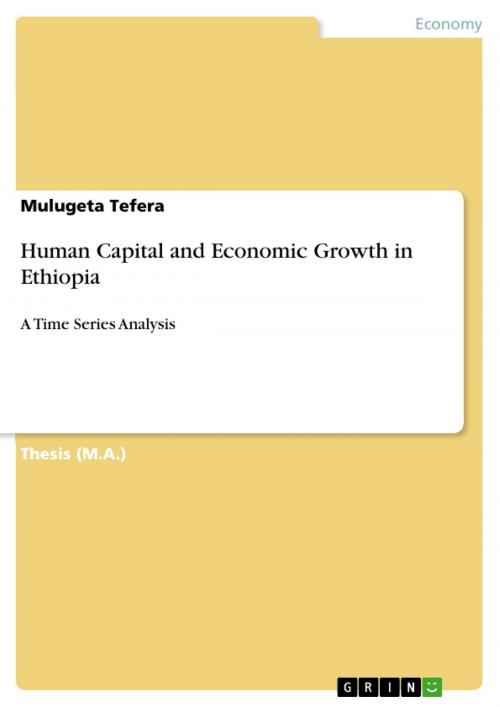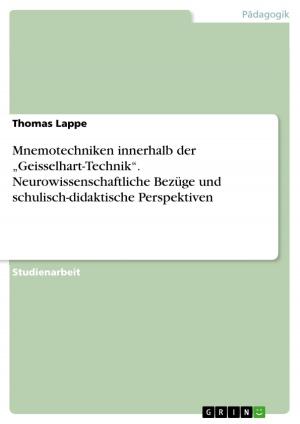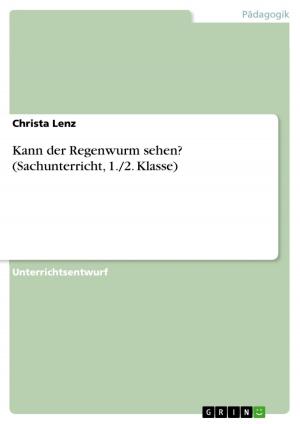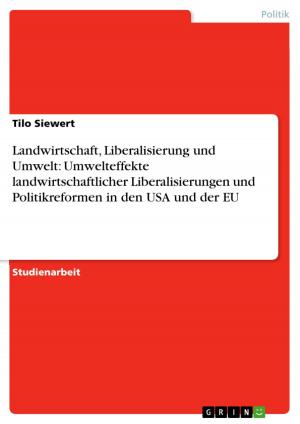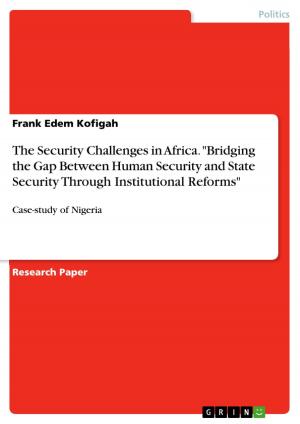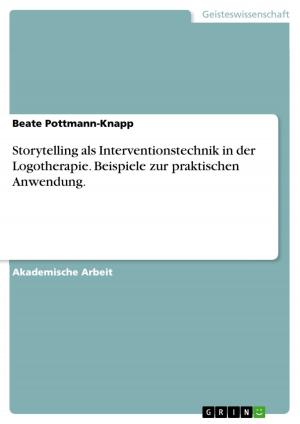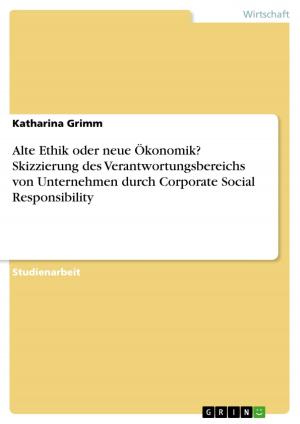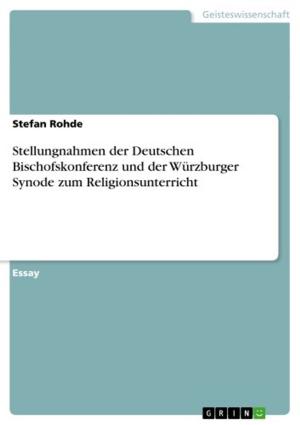Human Capital and Economic Growth in Ethiopia
A Time Series Analysis
Business & Finance, Management & Leadership, Operations Research| Author: | Mulugeta Tefera | ISBN: | 9783656946571 |
| Publisher: | GRIN Verlag | Publication: | April 21, 2015 |
| Imprint: | GRIN Verlag | Language: | English |
| Author: | Mulugeta Tefera |
| ISBN: | 9783656946571 |
| Publisher: | GRIN Verlag |
| Publication: | April 21, 2015 |
| Imprint: | GRIN Verlag |
| Language: | English |
Thesis (M.A.) from the year 2014 in the subject Business economics - Operations Research, grade: Masters of Science, Wollega University (School of Economics), course: Development Economics, language: English, abstract: The topic of the research is Human Capital and Economic Growth of Ethiopia. The research answered questions such as 'does human capital contribute to economic growth of Ethiopia?' with major objective to analyze the short run and long run effect of human capital on economic growth of Ethiopia over 1971 to 2013 using both ordinary least square (OLS) econometric and descriptive methods of data analysis. The data used for the research is secondary time series data collected by the National Bank of Ethiopia over the years 1971 to 2013. Nominal GDP is used as dependent and proxy variable for Economic growth while independent variables are physical capital, active labor force, terms of trade for measure of openness, government expenditure and human capital in the form of expenditure on health and education. Accordingly, the empirical finding shows that human capital in the form of education and health investment has consistent and significant long run effect on economic growth of Ethiopia at 5% level of significance. Keeping the other variables constant, 1% change (increase/decrease) in expenditure in human capital will change (increase/decrease) nominal output by 0.23%. In contrary short run human capital has consistent but insignificant effect on economic growth of Ethiopia. Because, either it takes time for education investment to pay off or the government's budget for short run education and health sector development is not sufficient. The adjustment of the short run dynamics or disequilibrium to the long run equilibrium is weak, which is 36%. Thus, education and sectors ought to allocate resources for both quality of and access so that the benefit from human capital development outshines in contribution to economic growth. The sectoral contribution of human capital to Ethiopian economic growth may be future research.
Thesis (M.A.) from the year 2014 in the subject Business economics - Operations Research, grade: Masters of Science, Wollega University (School of Economics), course: Development Economics, language: English, abstract: The topic of the research is Human Capital and Economic Growth of Ethiopia. The research answered questions such as 'does human capital contribute to economic growth of Ethiopia?' with major objective to analyze the short run and long run effect of human capital on economic growth of Ethiopia over 1971 to 2013 using both ordinary least square (OLS) econometric and descriptive methods of data analysis. The data used for the research is secondary time series data collected by the National Bank of Ethiopia over the years 1971 to 2013. Nominal GDP is used as dependent and proxy variable for Economic growth while independent variables are physical capital, active labor force, terms of trade for measure of openness, government expenditure and human capital in the form of expenditure on health and education. Accordingly, the empirical finding shows that human capital in the form of education and health investment has consistent and significant long run effect on economic growth of Ethiopia at 5% level of significance. Keeping the other variables constant, 1% change (increase/decrease) in expenditure in human capital will change (increase/decrease) nominal output by 0.23%. In contrary short run human capital has consistent but insignificant effect on economic growth of Ethiopia. Because, either it takes time for education investment to pay off or the government's budget for short run education and health sector development is not sufficient. The adjustment of the short run dynamics or disequilibrium to the long run equilibrium is weak, which is 36%. Thus, education and sectors ought to allocate resources for both quality of and access so that the benefit from human capital development outshines in contribution to economic growth. The sectoral contribution of human capital to Ethiopian economic growth may be future research.
